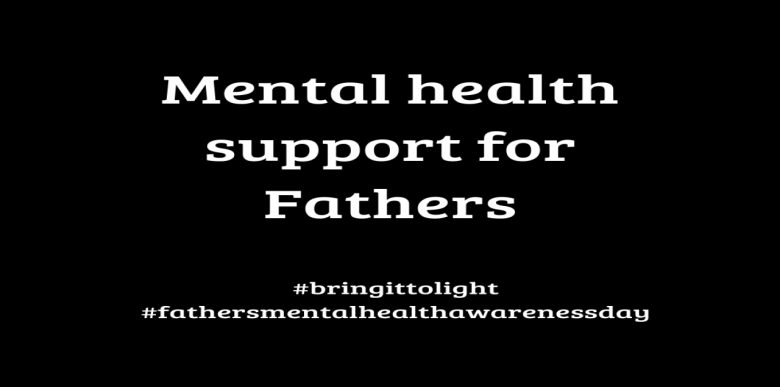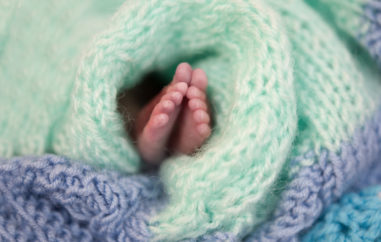Mental health support for Fathers
1
There’s a lot of features and information about mothers and mental health, which can only be a positive thing. We have to talk about it to help challenge the taboos and negative stigma. However, men, fathers, in particular, are often neglected from these conversations. It’s estimated that one in ten men will experience depression or anxiety symptoms in the first six months after the birth of their baby. So, it’s a relief that there is proper support in place for new fathers as well as mothers.
International Father’s Mental Health Day
17 June
SelfishMother.com
2
2019 is the third International Father’s Mental Health Day. It is a brilliant way to raise awareness about fathers and mental health. This year awareness is being raised through press releases, blogs and real-life stories. It’s about creating change for fathers, to highlight what they experience and how they can be supported. The fact that we are finally talking about mental health in relation to fathers is a massive step forward in breaking the silence and admitting the reality.
Government changes
Due to the efforts by this campaign, last year the
SelfishMother.com
3
Government confirmed the inclusion of mental health support for fathers. If a father has a wife or partner who is referred to perinatal mental health services, they have the opportunity to be assessed to see if they too require mental health care. This is a change that brings a smile to my face and hope in my heart. The screening is carried out by the NHS and fathers may be offered therapy sessions, peer-support or other programmes of care
The silent sufferers
One point that is possibly overlooked is the selflessness of men when their partners are
SelfishMother.com
4
experiencing perinatal mental health issues. Let’s face it; the woman carries the baby and has the baby. If they are experiencing post birth mental health issues, then perhaps the father does not think they have the right to be experiencing mental health problems. The focus is all on the mother, but it’s okay for the fathers to be affected too. They should be able to speak up and ask for help without fear of taking the attention away from the mother.
Support for all parents
I suffered terrible health issues as a result of my first birth. The pain
SelfishMother.com
5
was so intense for years after that it undoubtedly affected my mental health. I know my husband suffered too. He had to witness me screaming in pain on countless occasions, and he was helpless. My husband is a fixer, and he just couldn’t ‘fix’ me. That must have been extremely harrowing. If there was little support for me, there was none for him.
Paternity leave
For all the developments in employment law, paternity leave remains a maximum of two weeks. It’s such a short amount of time if the mother is experiencing post birth mental or physical
SelfishMother.com
6
health issues. My husband has only now admitted that he dreaded going back to work and leaving me. I was in a lot of pain, and he was worried about how I would cope. He had no one to support him when he was at work worrying about the baby and me. Essentially he was helpless. I feel terrible that he dealt with the fear and stress alone.
Stigma still exists
If support had been offered to my husband, I’m not sure he would have accepted it. Sadly, there is still a stigma attached to men asking for help. A weakness perhaps. It has to change. The Campaign
SelfishMother.com
7
Against Living Miserably (CALM) is a support movement against male suicide. In the UK, suicide is the single biggest killer of men under 45, which is both shocking and utterly scary. It’s why we have to persuade those men we know who might be hiding their mental health concerns to seek help. It’s why we have to let our children know that talking and asking for help is anything but weakness.
I am a huge champion for any campaign or support for new parents. Whether that is for health care for new mums or mental health support for parents. Mental
SelfishMother.com
8
health support for fathers has been overlooked and ignored for too long. Support for men can be found on the CALM website.
SelfishMother.com
This blog was originally posted on SelfishMother.com - why not sign up & share what's on your mind, too?
Why not write for Selfish Mother, too? You can for free and post immediately.
We regularly share posts on @SelfishMother Instagram and Facebook :)
Corporate to Kids - 17 Jun 19
There’s a lot of features and information about mothers and mental health, which can only be a positive thing. We have to talk about it to help challenge the taboos and negative stigma. However, men, fathers, in particular, are often neglected from these conversations. It’s estimated that one in ten men will experience depression or anxiety symptoms in the first six months after the birth of their baby. So, it’s a relief that there is proper support in place for new fathers as well as mothers.
International Father’s Mental Health Day
17 June 2019 is the third International Father’s Mental Health Day. It is a brilliant way to raise awareness about fathers and mental health. This year awareness is being raised through press releases, blogs and real-life stories. It’s about creating change for fathers, to highlight what they experience and how they can be supported. The fact that we are finally talking about mental health in relation to fathers is a massive step forward in breaking the silence and admitting the reality.
Government changes
Due to the efforts by this campaign, last year the Government confirmed the inclusion of mental health support for fathers. If a father has a wife or partner who is referred to perinatal mental health services, they have the opportunity to be assessed to see if they too require mental health care. This is a change that brings a smile to my face and hope in my heart. The screening is carried out by the NHS and fathers may be offered therapy sessions, peer-support or other programmes of care
The silent sufferers
One point that is possibly overlooked is the selflessness of men when their partners are experiencing perinatal mental health issues. Let’s face it; the woman carries the baby and has the baby. If they are experiencing post birth mental health issues, then perhaps the father does not think they have the right to be experiencing mental health problems. The focus is all on the mother, but it’s okay for the fathers to be affected too. They should be able to speak up and ask for help without fear of taking the attention away from the mother.
Support for all parents
I suffered terrible health issues as a result of my first birth. The pain was so intense for years after that it undoubtedly affected my mental health. I know my husband suffered too. He had to witness me screaming in pain on countless occasions, and he was helpless. My husband is a fixer, and he just couldn’t ‘fix’ me. That must have been extremely harrowing. If there was little support for me, there was none for him.
Paternity leave
For all the developments in employment law, paternity leave remains a maximum of two weeks. It’s such a short amount of time if the mother is experiencing post birth mental or physical health issues. My husband has only now admitted that he dreaded going back to work and leaving me. I was in a lot of pain, and he was worried about how I would cope. He had no one to support him when he was at work worrying about the baby and me. Essentially he was helpless. I feel terrible that he dealt with the fear and stress alone.
Stigma still exists
If support had been offered to my husband, I’m not sure he would have accepted it. Sadly, there is still a stigma attached to men asking for help. A weakness perhaps. It has to change. The Campaign Against Living Miserably (CALM) is a support movement against male suicide. In the UK, suicide is the single biggest killer of men under 45, which is both shocking and utterly scary. It’s why we have to persuade those men we know who might be hiding their mental health concerns to seek help. It’s why we have to let our children know that talking and asking for help is anything but weakness.
I am a huge champion for any campaign or support for new parents. Whether that is for health care for new mums or mental health support for parents. Mental health support for fathers has been overlooked and ignored for too long. Support for men can be found on the CALM website.
Did you enjoy this post? If so please support the writer: like, share and comment!
Why not , too? You can share posts & events immediately. It's free!
Who: Sarah - Queen of self-deprecation
Job: from corporate HR career to Mum, Writer and Blogger
Children: two boys with a 13 month age gap!!
Obsessions: writing, Haribos, rainbows, coffee, fizz
LIST




















